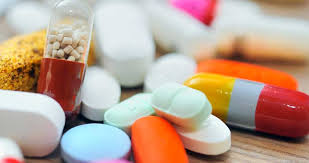
It’s obvious by now that New Zealand politicians have completely lost all control of the drug laws. From the legal highs circus to the disaster that was the Psychoactive Substances Act to the obstinate refusal to even discuss medicinal cannabis, we all know that they’ve lost the plot.
So when we get rid of them, we might as well get rid of their whole rotten system (founded on lies) and start from scratch, basing our drug policy on scientific evidence instead of the hysteria, primitive superstition and vicious envy that has characterised the standard approach until now.
If we start from scratch, what would our system of drug laws, restrictions and prohibitions look like?
This article suggests that the best model would be to have a system of different classes of license to purchase different classes of drugs.
This would operate much like the current system for licensing of motor vehicles. In the same way that anyone wishing to operate a motorcycle must demonstrate competence in a different set of skills to someone wishing to operate a regular car, so too does anyone wishing to use a drug safely need to understand various sets of skills relating to the class of drug.
For example, tobacco is a very safe drug in terms of how difficult it is to overdose (basically impossible) and how long it takes heavy use to kill you (several decades on average). So getting a license to buy tobacco would be very simple. Probably little more than demonstrating an awareness of the effects of tobacco and how to get help if they feel they are addicted.
Methamphetamine, on the other hand, is not so safe. It is very easy to use methamphetamine in a way that inadvertently leads to health problems.
So getting a license to use recreational methamphetamine might be more like getting a helicopter license – it may take a few years, it may require character references, it may require an absence of prior criminal convictions, it may require that the individual’s methamphetamine use is accounted for by a pharmacist who would notice a creeping addiction etc.
If anything, requiring a license to drink alcohol would make more sense than anything else. For one thing, people already have to prove that they are 18 years of age or older before they can buy alcohol, so having to have an alcohol license would not be an extra hassle.
For another – and this is the major advantage – an alcohol license would make it much easier for the justice system to deal with alcohol-related misbehaviour: simply take the alcohol license away.
Drunk in charge of a motor vehicle? Loss of alcohol license and driver’s license. Drunk and bash someone over the head for a laugh? Loss of alcohol license and a fine or imprisonment. Drinking yourself to death and your GP knows he’s watching you die? Loss of alcohol license and the option of an addiction management course.
As it stands currently, you can get drunk, bash someone, get a suspended sentence because prison for common assault is considered a bit heavy, and then be back on the piss that afternoon.
Curiously, there is already an example of such a thing in Polynesia: alcohol licenses in Tonga.
If one imagines a system in which a person could use basically whatever drug they wanted as long as they could complete a reasonable, objective, intelligently-designed series of tasks that demonstrated competency to use it with a minimum of negative externalities on society, it seems so much better than the stupidity we now have.
It would also bring some respect back for the mental health services, as it is currently impossible to have any when they lie to their patients about the medicinal value of various drugs: it would be impossible to get away with telling such lies under an evidence-based system.
This would also circumvent other problems, such as the potential for drug tourism. People who come on short visits to New Zealand won’t have drug licenses, and Kiwis will be reluctant to use their licenses to buy drugs because, if caught, they would lose them.
Such a system of licensing would make it much easier to correctly respond to societal health and crime problems than the current “destroy the drug user” model.
